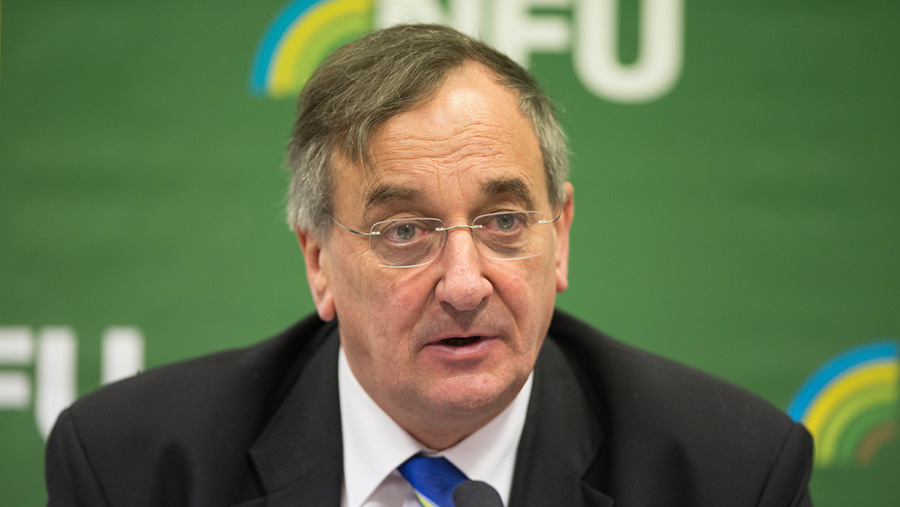NFU backs UK remaining within the EU
 Meurig Raymond © Tim Scrivener
Meurig Raymond © Tim Scrivener The interests of British farmers will be best served if the UK remains a member of the European Union, says the NFU.
A motion favouring the UK remaining an EU member was passed by the NFU at a union council meeting on Monday (18 April).
“On the balance of existing evidence available to us at present, the interests of farmers are best served by our continuing membership of the European Union,” it said.
The resolution was passed following a four-hour debate.
The council meeting was held following the publication of an NFU report examining the pros and cons of an EU exit and 28 roadshows attended by an estimated 2,500 union members.
See also: All the latest FW stories on the EU referendum
The NFU said its position was based solely on an evaluation of the agricultural merits of the case – adding that the union was fully aware there were “many wider issues” at stake.
Speaking afterwards to Farmers Weekly, NFU president Meurig Raymond said: “There was a strong view from the membership that they wanted us to come up with a view.”
The overwhelming view from members at roadshow meetings was that the UK should remain part of Europe, but that the NFU should not take part in any campaign, he added.
“There are many things wrong with the EU – it needs reform and we desperately need reform of the existing CAP,” said Mr Raymond.
“But from a farming point of view – and it is all about UK farming – it is the uncertainty if we decide to leave and what that uncertainty will generate over the coming years.”
The EU was a key market for UK farmers, said Mr Raymond. “Access to a single market of 500 million people is tremendously important,” he added.
Farmers exported a lot of sheep, wheat and barley to the EU, alongside shipments of beef and dairy products, Mr Raymond said.
Labour availability was also important. “Without that availability of labour, it would put our horticultural industry and our food processing industry at a big disadvantage.”
Farm support was key. “If we were asked to compete against our colleagues in Ireland and Holland on an uneven playing field, it would be very difficult for us as an industry.”
The vote at NFU council looked at a number of key issues. They included:
- Implications for UK agricultural trade with the EU and the rest of the world
- The balance of risks of a national farm policy versus the CAP
- The effect of the agricultural uncertainty following a vote to leave
- Potential effects on the wider food chain
- Consequence for farming regulation, in or out
- Consequences for agricultural labour availability
- Consequence for agricultural product approvals
- Consequences for science and R&D relating to agriculture
Recognising the diversity of views among its members, the NFU said it would not be actively campaigning in the referendum.
Neither would it be joining with any campaign groups and it would not – in any circumstances – advise its members how to vote.
But Electoral Commission rules governing the in-out referendum on 23 June meant the NFU had to register if it was to continue informing members of the issues as they affected farmers.
Whether the vote was to stay or to leave, the NFU would always lobby to obtain the best possible deal for British farmers, Mr Raymond said.
